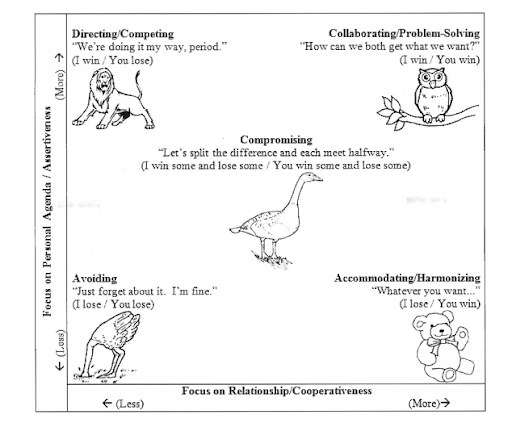Many of us use different styles to navigate conflict, at different times, and in different situations. All conflict styles can be healthy and useful for certain situations. There is no one best or preferred conflict style.The majority of people do have a default or “go-to'' conflict style that they use the majority of the time. It is important to acknowledge and understand your conflict style.
Understanding your conflict style and the conflict style of the person(s) you are in conflict with will help you navigate conflict in a healthy way. For example, you may be someone who uses a collaborator conflict style and you are in conflict with someone who has an accommodating conflict style. As the collaborator, it is important to create a safe space for the person to express how they are truly feeling and their needs/wants. As a collaborator, if you do not give enough time and space for the conflict, the individual with the accommodator conflict style may feel bulldozed and this will not actually solve the conflict. While an avoidance conflict style is usually perceived as negative, it can also be very useful. Sometimes people do not have the emotional capacity to be in conflict or they simply do not have preference for what the end results may be and that’s acceptable too. Each conflict style has its benefits and challenges.
To learn more about conflict styles or request a conflict workshop go on oscr.umich.edu or email [email protected] or call us at (734) 936 6308.

